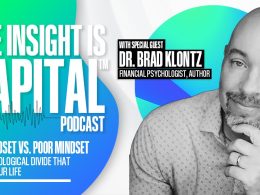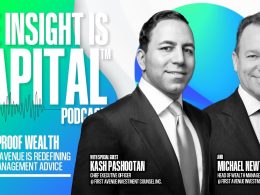Advice from a Millennial Advisor
by Commonwealth Financial Network
 Millennials are generally defined as those individuals born between 1980 and 2000. They grew up in a dynamic and rapidly changing environment that had profound effects on their personalities and economic and social views. Tech-savvy, well-educated, and eclectic, this group is in the process of positioning itself at the epicenter of the financial world. Along with their earnings potential, which will start to peak in the coming years, millennials are poised to inherit their baby-boomer parents’ assets.
Millennials are generally defined as those individuals born between 1980 and 2000. They grew up in a dynamic and rapidly changing environment that had profound effects on their personalities and economic and social views. Tech-savvy, well-educated, and eclectic, this group is in the process of positioning itself at the epicenter of the financial world. Along with their earnings potential, which will start to peak in the coming years, millennials are poised to inherit their baby-boomer parents’ assets.
Given all of this, many advisors have started to think about how to attract millennial clients to their business. Here, we’ll cover why this generation presents a valuable opportunity for you, plus share advice from one of Commonwealth’s own millennial advisors.
Although millennials are well educated, they often lack the foundational knowledge needed to make sound financial decisions. In fact, a survey of more than 5,500 millennials revealed that only 24 percent demonstrated basic knowledge when tested on financial concepts. In addition, millennials have taken on an exorbitant amount of debt through high-interest credit cards and student loans, and more than 20 percent said they had taken loans or hardship withdrawals from their retirement accounts. Such bad habits are the recipe for a massive financial shortfall down the road.
Given their penchant for technology, however, millennials are quick to obtain and use financial advice from the Internet. It seems that they would rather watch a video or read a social media post than sit down with an established financial advisor. (In the same survey mentioned above, only 27 percent had sought professional advice.) Do they think they can easily make their own financial plans? Or are they just unaware of the services that a financial advisor can offer? It’s hard to say. In any case, there certainly is an opportunity for advisors to step in and work with millennials to help improve their financial outcome.
One Commonwealth advisor, who happens to be a millennial himself, has done just that. Douglas Boneparth, CFP®, MBA, joined Commonwealth as part of Longwave Financial in New York City and has recently opened his own millennial-focused firm, Bone Fide Wealth. I recently sat down with Douglas to get his insight into the millennial generation. Here, he shares his advice on how to tap into this market, as well as strategically work with millennials to overcome some of the financial challenges they currently face.
Q: How would you characterize millennials?
A: By definition, millennials fall in the age range of 18 to 34. But I’d argue that being a millennial is more than just a number; it’s a mind-set. Millennials leverage technology, prefer collaboration, place an emphasis on giving and receiving value, appreciate work-life balance, and recognize the challenges facing them while taking a proactive stance toward overcoming them.
Economically speaking, millennials run the gamut. There are HENRYs (high earners, not rich yet) and tech start-up millionaires. So it’s hard to fit them into a socioeconomic box.
Q: What are the biggest financial challenges that millennials face?
A: The financial landscape for millennials is very different from that of their parents and grandparents. The biggest challenge for many is overcoming crippling student loan debt. This one item is capable of absorbing significant money that would otherwise be allocated toward savings.
Additionally, a vastly different labor market has millennials competing and working in what could be considered nontraditional roles, such as starting their own entrepreneurial ventures or joining a start-up company. Long gone are the days of pensions and a gold watch after a 30-plus-year career at a single company. Today’s workers must constantly seek out value from a work-life balance and professional growth standpoint. If that can’t be found in an organization, millennials are likely to find someplace else to work or go out on their own. This is arguably more challenging than it once was.
Finally, the lack of financial literacy is not just millennials’ problem but society’s problem, although millennials need education most given their unique set of challenges. Without it, they have a disproportionately lower probability of overcoming their financial challenges.
Q: How do you help millennials overcome their challenges?
A: Financial empowerment begins with financial education. I invest in my generation by providing them with valuable content—whether it’s my Financial Planning Launchpad, a three-step process for understanding the foundational aspects of financial planning; Personal Finance Cheat Sheet, a high-level overview of all major personal finance topics; or myriad informational articles, tweets, and digital content from my blog and website. Creating valuable content is critical to helping millennials. Moreover, I’m happy to spend 30 minutes of my day speaking with a highly motivated young professional who might not be ready to engage in professional financial services today but could very well be in the not-so-distant future. Again, I’m shifting the paradigm by investing in them first.
Q: What makes you different from other advisors trying to target millennials?
A: For one, it’s about being relatable. As a millennial, I too have taken on a significant amount of student loan debt, so you could say I have skin in the game when it comes to truly understanding what it feels like.
At the age of 31, I have more than a decade of experience in this industry—something that may set me apart from other financial advisors who are millennials. Having said that, however, I still think millennial financial advisors at any level stand a greater shot of attracting a millennial clientele.
Last but not least, I’m very creative and active with the type of content that I generate. I don’t think many financial advisors are willing to dedicate 50 percent or more of their day to marketing, let alone take the time to invest in their clients first. It’s a big undertaking, but the long-term opportunities are virtually unlimited.
Q: What strategies have you used to attract millennials to your practice and cultivate these relationships?
A: First, I’ve developed a strong social media and online presence. If you and your practice are not on social media, then you’re doing it wrong. I think this is critical to attracting millennial clients and just mandatory for operating a business moving forward. This, along with getting out of the office to conduct speaking engagements and seminars, working booths at relevant expos, and sponsoring networking events geared toward young professionals, has helped with my overall marketing strategy.
Appearances and features in the press are another big part of my marketing efforts. You wouldn’t believe how easy it is to pitch a reporter on an idea, story, or survey, and if what you’re proposing is interesting, they’ll potentially create a story around it. Half the time, reporters are just looking for lines from advisors. I strongly urge advisors to start building a network of media contacts. Mentions in the press are just one more way to push content and distribute value across your platform.
Q: What advice would you give to advisors looking to build in this market?
A: There’s no faking it. Either you want to do it with a burning desire or you don’t. Be honest with yourself. If you’re not the person that this demographic can relate to, can you find somebody who is? I see many solo practitioners who don’t have a succession plan or a robust enough pipeline to see their businesses into the next 20 years. Maybe this is an opportunity for them to fix that. The stats are stacked against them, though. I believe we're seeing a graying of the financial advisor population, and as an industry, we're having a problem attracting young talent.
If you’re looking for a place to start, begin by engaging your existing clients and see if it’s okay to involve their children in your next meeting. Putting your face to your name and engaging them could be the difference between those assets shipping out when their parents have passed.
Q: How has Commonwealth helped you achieve success with this niche market?
A: Commonwealth is one of the few broker/dealers to offer or allow the tools and flexibility to engage millennials the way I want to. This means everything to me. A lot of the methods I use rely on a savvy and responsive Compliance department. Luckily for us, I believe ours is second to none.
Beyond just our technology and internal resources, members of our Marketing team and leadership have been available to provide me with what I need to carry out my marketing plan. Whether that’s guidance or research, they are there to support me and my mission to help my generation.
As I think Douglas Boneparth has expressed so well, making space for millennials in your practice means first recognizing the unique financial challenges they face and then providing them with the financial education they need. Of course, with so much debt, they aren’t likely to have much money to invest with you right now. But I encourage you to look at their potential—at their ability to overcome their financial shortcomings and become your ideal clients of the future. If you do that, “the long-term opportunities are virtually unlimited.”
What strategies have you used to reach millennial prospects? Do you view social media as vital to your practice? Please share your thoughts with us below!
Doug Boneparth is a financial advisor located at Bone Fide Wealth, 4 World Trade Center, 29th floor, New York, NY 10007. He offers securities and advisory services as an Investment Adviser Representative of Commonwealth Financial Network®, Member FINRA/SIPC, a Registered Investment Adviser. He can be reached at 212.390.1611 or at douglas@bonefidewealth.com.
Commonwealth Financial Network is the nation’s largest privately held independent broker/dealer-RIA. This post originally appeared on Commonwealth Independent Advisor, the firm’s corporate blog.
Copyright © Commonwealth Financial Network
















